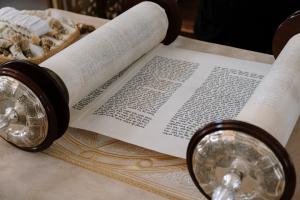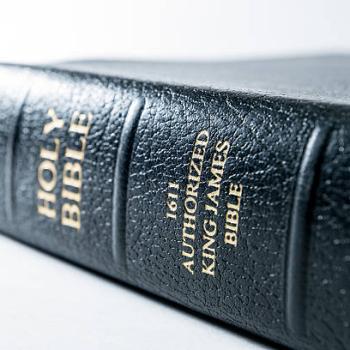
The Bible, in The Torah, the Prophets, the Gospels and the Epistles, warns the faithful, whether Jews or Christians, that false teachers and false prophets who claim to know the mind of God, will appear from time to time and attempt to lead people away from the true faith.
The Open Bible website lists more than 50 examples from the Hebrew Bible and the New Testament ( https://www.openbible.info/topics/ ). We will examine here a few of these which can be most useful to us today as we navigate our ever more complex world.
What is a Prophet?
We will digress here for a brief moment to examine our definition of the idea of a “prophet.” This word can have different meanings for different people so I will clarify what a prophet is for the purposes of this article. The simplest definition seems to be the one offered by the Miriam-Webster dictionary:
Prophet: one who utters divinely inspired revelations: such as
- often capitalized: the writer of one of the prophetic books of the Bible
- capitalized: one regarded by a group of followers as the final authoritative revealer of God’s will ( https://www.merriam-webster.com/dictionary/prophet ).
A prophet, then, is one who utters divinely inspired revelations. For the purposes of this article, a prophet can be anyone who has been inspired by God to make statements which reveal that inspiration. We will not qualify the nature or method of that inspiration but will leave that for later discussion.

A prophet who meets this definition will have legitimately, in whatever manner, received a message from YHWH and will have transmitted that message to the people intended by YHWH.
Where Do We Find Prophets in the Bible?
In the Hebrew Bible, the Book of Deuteronomy contains eight such instances in which the Israelites are warned against false teachers or false prophets.
We will examine the instance which is likely most familiar: Deuteronomy, chapter 13, in which Moses admonishes the Israelites to reject any prophet or “dreamer of dreams” who produces “signs and wonders” and attributes them to any god other than YHWH. In fact, Moses instructs he Israelites to put these false prophets to death ( https://tinyurl.com/229c4mws ).
It is helpful to remember that in the centuries before the Assyrian conquests, the Babylonian conquest, the Persian conquest, the Greek conquest and the Roman conquest of the Israel and Judah, and also during these times, there were many cults of many gods vying for the attention of the people. Cults representing gods of Mesopotamia, the Levant, Phoenicia, and all the lands surrounding Israel, which was, itself, a trading crossroads for many empires and cultures, competed for the attention and devotion of the people of Israel. The Bible tells of rival gods who made their way into the Jerusalem Temple itself during the reign of Josiah.
Josiah destroyed the idols of gods including Asherah, seen by some cults in Israel and Judah as a goddess equal to YHWH and possibly his wife ( https://tinyurl.com/3vz55b6c ). It is important to understand that the Israelites did not become entirely monotheistic until the period of the Babylonian captivity and the period of their return to Jerusalem and even then, we see a great deal of disparity of beliefs among the people as the priests attempt to consolidate power in the Temple and eliminate rival gods. As we approach the Roman period, we will see a profound and seminal schism in Jewish theology.
After Deuteronomy, several of the prophetic books of the Hebrew Bible warn about false prophets as well.
Even the Prophets Warn of False Prophets
In the Book of Jeremiah, the prophet admonishes the people that YHWH warns of those who speak “visions from their own minds,” and not from the mind of YHWH (https://tinyurl.com/3f4u8kr8).
In the Book of Ezekiel, YHWH gives a stern warning to his people that his “hand will be against the prophets who see false visions and who give lying divinations.” He states that these false prophets will not be allowed into Israel ( https://tinyurl.com/y5a5t26z ).
False Prophets in the New Testament
The Hebrew Bible contains many other warnings about false prophets but we turn now to the New Testament and the Gospel of Matthew, which contains perhaps the most well-known admonition. In what has been called the Sermon on the Mount, Yeshua, the Messiah in the Christian tradition, in his most often quoted sermon, famously preaches to a large gathering of people on a hill in northern Israel, covering a broad set of topics, including discipleship, parables, and moral teachings. In Chapter 7, we read that Yeshua uses two brilliant metaphors which have made it into our modern idiomatic usage. Yeshua compares a false prophet to a “wolf in sheep’s clothing,” and warns the people to recognize a “tree by its fruits,” meaning that sometimes a false prophet will come to us in disguise but that we can judge him by his actions, not his appearance.

Who is the Final Prophet in the Bible?
After Yeshua, we examine Saul of Tarsus, also known to the Christian faithful as Paul the Apostle. Paul refers to himself as an apostle but only he and the writer of the Book of Acts of the Apostles refer to him in that way. Paul warns his followers to be wary of “some who are troubling you and confusing your minds, wanting to distort the gospel of Christ.” Paul’s final statement here is quite strongly worded: “If anyone proclaims to you a gospel contrary to what you received, let that one be accursed (let him go to Hell!) (https://tinyurl.com/y62xp5bs)
Paul, himself, is considered a prophet and, in fact, a saint in the version of Christianity that survived, thrived, and in many ways, ideologically speaking, took over the Western world. I make this point because Paul is one of the last of the people in the Bible who is considered a prophet, the last one being John of Patmos, the reported author of the Revelation of John, the last book in the agreed-upon New Testament.
It is Paul’s teachings which have defined Christian theology more than any other person with the exception of Yeshua himself, and as we will explore in later articles, in reality, Christian thought possibly owes more to the teachings of Paul than to the teachings of Yeshua. Paul’s letters and those attributed to him hold an honored and revered place in Christian faith and practice. In many Christian liturgies, during a Sunday service, a reading from one of Paul’s letters is given the same reverence as a reading from the Gospels.
So, What Do We Make of This Man Who Calls Himself a Prophet?
Is Paul’s teaching to be seen as just as important as the words of Yeshua?
Here are some thoughts:
- Paul was not chosen and called an Apostle by the living Yeshua.
- Paul never met Yeshua in the flesh. His divine inspiration came in the form of a vision of Yeshua after Yeshua’s ascent into heaven. He wrote that Yeshua commissioned him to preach the good news to the world.
- No one we know of contemporary with Paul, other than the Author of Luke and Acts, ever refers to Paul as a prophet.
- Paul’s Good News, that is, his beliefs and teachings about the means of salvation differ significantly from the beliefs and teachings of Yeshua himself. We will explore this in detail in later articles.
We see, throughout the Bible, warnings about false prophets. As we examine the writings of Paul, as we will explore in later articles, the theology he espouses departs in several ways from the theology or at least the teachings of Yeshua.
Taking these thoughts together, I believe we can pose a new and possibly contentious question, open to discussion: Can Paul, himself, in any sense, be seen as a false prophet?
Stay tuned.










